It’s a new year, so let’s start off spending some time refining or developing our personal brands.
Starbucks, Victoria Secrets and UPS are clear examples of branding. When you hear their names, you can easily envision their businesses – for example, the way each looks and performs. For well branded entities, your expectations are typically congruent with the branding they have developed. Individuals have their own branding as well and in the business world, personal branding is quite often a very intentional, methodical act. Willie Nelson’s personal branding creates a clear image of who he is and the world his product belongs with. The same holds true for Warren Buffet. The personas they have created, respectively, present consistent images of who they are (or at least, who we are to see them to be) and what they represent.
What you eat, where you live and what you drive are parts of your personal brand. Likewise, so are your educational background, you areas of expertise, what you wear to work, your system of morals and values, the vocabulary you use, your disposition, etc. Collectively, these are called your personal brand attributes.
Why is Personal Branding Development Important?
Personal branding is relevant to anyone who wants to define who they are and what they represent. Focusing on the business aspects of self-branding, it becomes clear that, among other things, it is also an integral key to defining one’s stance in relation to competitors (or others within one’s organization), the development of one’s reputation, and forms an invitation to learn more about who you are and what you have to offer. Importantly, it also builds trust and confidence in those you are dealing with, that you are “the real deal”.
The process of personal branding also enables you to:
- Stand out in a crowd
- Focus your energies and prioritize
- Identify and release attributes not congruent with who you want to be/to be seen
- Be proactive
- Take a huge step towards self fulfillment and self actualization
- Foster your most positive attributes
Self Assessment:
What personal attributes are worthy of promoting?
What are my challenges?
In what areas could I improve?
What are my brand assets?
What are my brand deficits?
How do I want to be perceived?
Do I overpromise and then under-deliver?
Am I reliable?
Am I confident/do I promote confidence in others?
Ask Friends and Family How They Perceive You:
• How do you perceive me?
• How do you think others perceive me?
• What do you believe are my top three personal strengths?
• Am I a team player/leader?
• Am I reliable?
• Am I manipulative or sincere with others?
• What have I not asked you that you think I should know about how I am viewed by others?
In A Business Sense, Now Ask Yourself These Additional Questions:
What persona do I need exhibit?
Do I dress the part?
Do I speak the part?
Are my mannerisms congruent with the persona I wish to portray?
What continuing education should I invest time with?
Am I aligned with the right people?
Am I confident?
Who would I consider to be the model of what I wish to portray?
The Next Step:
Next, spend some time with the results to your inquiries and begin to define the personal branding you wish to develop – who you are and how you want others to see you. Use the SMART acronym for this process. Then, explore how you can make your refined brand known to your market and act on it with consistency.
Specific: Understandable and simple to communicate to others
Measurable: Can be checked and tracked
Achievable: Can be reached, not “pie in the sky”
Relevant: Allowing you to stretch, but still reasonable
Time-bound: Set in a framework of completion; accompanied by a due date
###
Titan Business Development Group, LLC
www.TitanBDG.com



